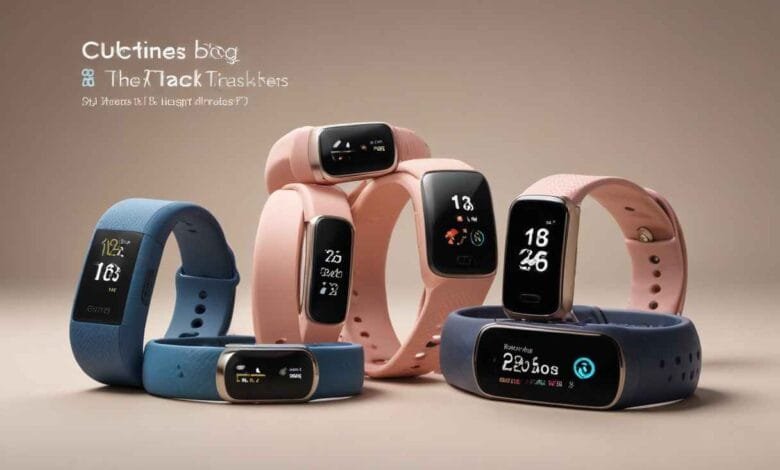Cutting-Edge Wearables: The Ultimate Ultimateto Fitness Trackers

In the modern world, staying fit and maintaining a healthy lifestyle has become more crucial than ever. Wearables have advanced from simple step counters to sophisticated devices that can monitor various aspects of our health and fitness in real time. These cutting-edge trackers are designed to provide continuous feedback on your physical activities, helping you make informed choices about your wellbeing. In this ultimate guide, we will explore the latest developments in fitness trackers, their diverse features and benefits, and how to select the right one for your specific needs and goals.
The Evolution of Fitness Trackers
Modest Beginnings
The journey began with basic pedometers that merely counted steps, establishing the foundation for more sophisticated wearables. As technology progressed, early trackers incorporated additional metrics like heart rate and calories burned.
Recent Innovations
Today’s trackers leverage cutting-edge techniques. They can track an array of physical pursuits, whether running, cycling, swimming, yoga, or more. State-of-the-art sensors combined with GPS and compatibility with mobile devices and other wearables have transformed these tools into essential companions for active individuals and those seeking overall wellness.
Key Capabilities of Advanced Fitness Trackers
Activity Monitoring
Contemporary trackers can monitor diverse physical activities, counting steps, measuring distance, and estimating calories expended. Some top models can even recognize particular exercises and supply detailed performance analytics.
Heart Rate Tracking
Continuous heart rate monitoring is standard across most trackers. This allows monitoring your heart rate during workouts and throughout the day, providing insight into your cardiovascular fitness.
Sleep Tracking
Understanding our sleep patterns is vital for general health. Fitness trackers with sleep monitoring capabilities can observe the quality and duration of our rest, helping us make alterations for improved sleep.
GPS and Connectivity
Built-in GPS permits accurate monitoring of outdoor activities like jogging and cycling. Connectivity traits, such as Bluetooth and Wi-Fi, enable seamless synchronization with smartphones and fitness programs, supplying a comprehensive perspective of our fitness data.
Health Metrics
State-of-the-art fitness trackers can calculate various health signs, including blood oxygen levels, anxiety levels, and even ECG (electrocardiogram) readings. These characteristics furnish a holistic view of our health, allowing us to form informed conclusions.
Benefits of Employing Fitness Trackers
Motivation and Accountability
One of the main advantages of fitness trackers is the inspiration they offer. Seeing real-time data on our physical action can encourage us to move more and stay active. Moreover, establishing goals and getting reminders can help us stay accountable to our fitness routine.
Individualized Insights
Fitness trackers present individualized insights based on our data. They can advocate workouts, propose rest intervals, and furnish suggestions for improving our performance. This customization makes certain that our fitness plan is tailored to our specific needs.
Health Monitoring
Regular observation of health metrics allows us to detect potential problems early. For example, abnormal heart rate patterns or changes in sleep quality can indicate underlying health issues. By keeping track of these signs, we can take proactive steps to address any concerns.
Enhanced Performance
For athletes and fitness enthusiasts, fitness trackers offer detailed performance analysis. This information can help us fine-tune our training, boost our technique, and achieve better results.
Choosing the Right Fitness Tracker
Identify Your Needs
Before purchasing a fitness tracker, it’s essential to understand your specific needs and expectations. Are you looking for a basic device to simply monitor steps and calories burned, or do you need a tracker with more sophisticated abilities like heart rate monitoring and GPS routes? Having clarity on what you hope to achieve will assist in narrowing down your choices.
Evaluate Features
Consider the varied capabilities available. Some trackers focus solely on fundamental fitness monitoring, while others are tailored towards precise activities like running, cycling, or swimming. Be certain the gadget you select offers the traits important to fulfilling your health desires.
Budget Considerations
Fitness trackers are accessible at different price points. Top-tier models with sophisticated metrics can carry a higher cost, whereas simple trackers are more affordable. Decide which budget works for you and opt for a device delivering quality for the money spent.
Compatibility
Make sure the fitness tracker you pick is compatible with your phone and other digital gear. Most include companion apps delivering in-depth examination of your data. Compatibility with popular exercise programs can enhance the overall experience.
Leading Fitness Trackers for 2024
Apple Watch Series 8
The Apple Watch Series 8 is an elite option for those serious about health and wellness. It delivers comprehensive tracking of vitals including heart rate, ECG, blood oxygen levels, and GPS routes. The watch also integrates seamlessly with Apple products, providing a smooth workflow.
Fitbit Charge 5
The Fitbit Charge 5 is known for accuracy and dependability. It features progressed health analytics, like stress management, heart rate variability, and sleep phases. The device additionally has onboard GPS and contactless payments through NFC.
Garmin Forerunner 945
The Garmin Forerunner 945 is a precision running watch designed for serious athletes seeking to optimize performance. It analyzes various metrics including VO2 max, training load, and recovery time to offer invaluable insights. Music can be streamed directly to Bluetooth headphones and battery life is excellent, making it well-suited for prolonged workouts.
Samsung Galaxy Fit 2
The Samsung Galaxy Fit 2 provides basic but effective tracking at an affordable price. Heart rate, steps, and sleep are continuously monitored. Lightweight and comfortable enough for all-day wear, it tracks activity without hassle or discomfort.
Conclusion
Fitness trackers have evolved remarkably since early basic models. Today’s advanced wearables deliver comprehensive functionality tailored to an array of needs. Whether just starting a routine or striving for elite results, there is an option available. Carefully considering requirements, budget, and compatibility ensures selecting the tracker that best facilitates achieving health and fitness goals.
